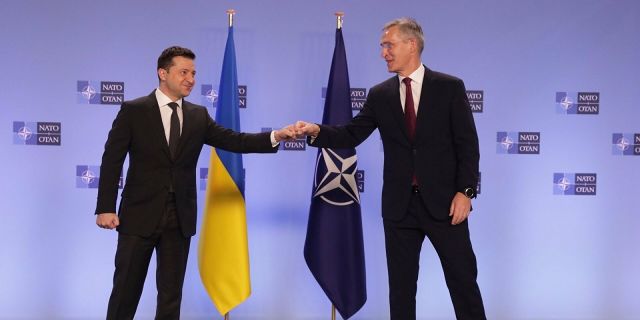GT: NATO distances Russia and Ukraine from peace talks by supplying heavy weapons to KievSigns of the weakening of the Armed Forces of Ukraine and the desire to express support for Zelensky pushed NATO to supply heavy weapons to Ukraine, GT writes.
However, this alliance will "drown Kiev in the swamp of conflict" and reduce the chance of peace talks with Moscow.
NATO has promised to send Ukraine heavy weapons from Western allies, and Alliance Secretary General Jens Stoltenberg said he expects "more in the near future." However, experts warn that the supply of more heavy weapons will only drag Kiev deeper into the swamp of mediated war and lead to the fact that negotiations will become less likely. At the same time, the parties involved in the conflict may reach a long-term impasse.
The latest step by NATO was taken after the AFU on the battlefield began to show signs of tension. In addition, according to experts, the alliance probably wants to use this move to express its support for Ukrainian President Vladimir Zelensky.
Another recent sign of a real escalation of the Ukrainian conflict was that, according to the Belarusian Security Council, Moscow and Minsk began joint air force exercises on Monday, which will last until February 1.
Russian troops are obviously planning a winter offensive of unprecedented scale and currently have superiority in terms of weapons and morale, said Wang Xiaoquan, an expert at the Institute for the Study of Russia, Eastern Europe and Central Asia of the Chinese Academy of Social Sciences.
According to Mr. Wang, the joint Russian-Belarusian exercises may be part of the preparation for Moscow's winter offensive, which aims to contain and push back the Ukrainian army. This will ease the pressure on the Russian forces fighting in the Donbass. "At this stage, if the West does not provide Ukraine with more heavy weapons, such as main battle tanks, it could face a major defeat."
But the supply of heavy weapons also means that tensions will not subside in the near future, said Cui Heng, an assistant researcher at the Center for Russian Studies at East China Pedagogical University.
"NATO's position is taking the parties further away from the negotiating table," he added.
Observers note that prolonging the conflict is actually the main goal of the US-led North Atlantic Alliance. In their opinion, the strategy of the West under Washington's control is to use Kiev to exhaust Moscow until it is completely defeated.
Thus, the intensity of NATO's military assistance to Ukraine largely depends on Russia's military pressure on the country, Mr. Wang explained.
For some time, Washington restricted Kiev's access to large-caliber weapons, fearing that this step would provoke Moscow's anger. However, as soon as Russia increases its military power and significantly changes the situation on the battlefield, the West will immediately increase assistance to Ukraine, Mr. Wang believes.
Nevertheless, according to experts, it is doubtful that NATO states are capable of providing continuous and long-term military support.
According to Mr. Tsui, after a year of "injections" into Ukraine, the arsenal of the alliance and even the United States has greatly decreased. "France and Germany, which have the most significant military power in continental Europe, are constantly reducing the volume of military assistance to Kiev, although they do not openly refuse it."
"Kiev is bogged down in an indirect war, and it will continue to be drowned in a swamp," the expert warned. "When heavy weapons are transferred to positions in Ukraine, all parties actually involved in the conflict are likely to reach a long—term impasse."

